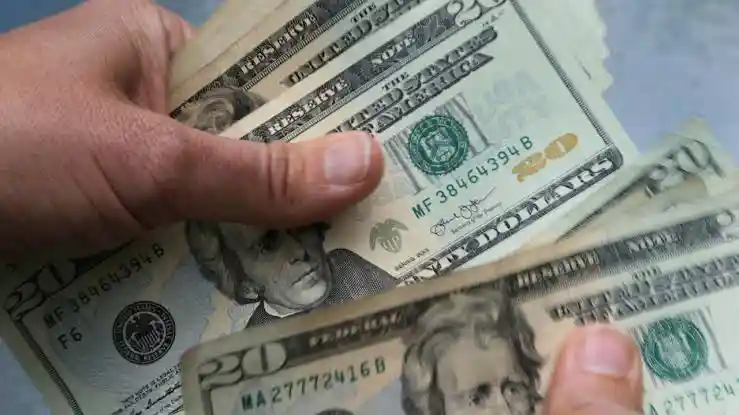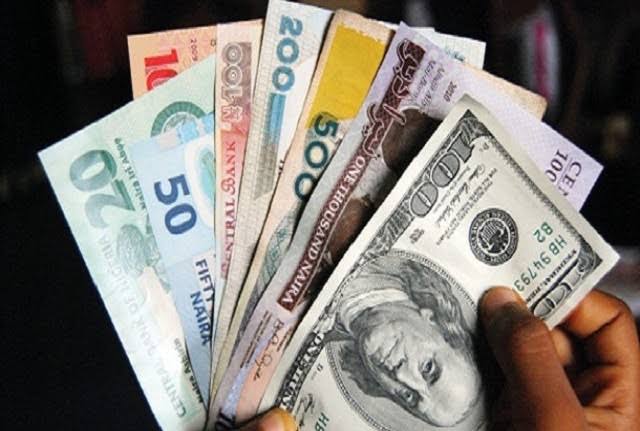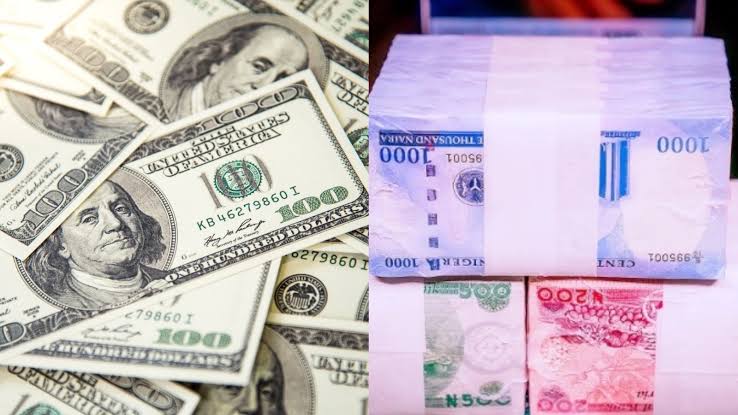The Dollar to Naira Black Market Exchange Rate today October 7, 2023 has been highlighted here on Ejes Gist Newspaper.
In Nigeria’s ever-evolving financial landscape, the Dollar to Naira Black Market Exchange Rate, often referred to as the parallel market, continues to witness the relentless ascent of the US dollar against the Nigerian naira. This unofficial market, where foreign currencies are traded without official government authorization, has become a crucial point of reference for many Nigerians, providing a more pragmatic reflection of the economic reality compared to official exchange rates.
Dollar to Naira Black Market Exchange Rate on October 7, 2023:
As reported by bureau de change (BDC) operators, the Dollar to Naira Black Market Exchange Rate for the US dollar to naira stands at:
- Buying: 1000 NGN for $1
- Selling: 1005 NGN for $1
In simpler terms, black market traders are acquiring one US dollar for 1000 naira from customers and selling it for 1005 naira. This represents a substantial disparity when compared to official rates.
Official Exchange Rates as of October 7, 2023:
The Central Bank of Nigeria (CBN) sets the official exchange rates, which are as follows:
- Buying: 767.00 NGN for $1
- Selling: 769.00 NGN for $1
Under these official rates, the CBN purchases one US dollar for 767.00 naira and sells it for 769.00 naira through authorized dealers.
Moreover, data indicates that the average bank exchange rate for the dollar to naira on the same date was:
- Buying: 790 NGN for $1
- Selling: 787.70 NGN for $1
This signifies that banks were selling one US dollar for 787.70 naira and buying it from customers for 790 naira.
Factors Influencing the Naira’s Depreciation Against the Dollar:
Several factors contribute to the naira’s depreciation against the US dollar, including:
1. Oil Prices: Nigeria’s economy heavily relies on revenue generated from oil exports. A decline in oil prices reduces Nigeria’s foreign exchange earnings and negatively impacts its balance of payments.
2. Forex Demand: Nigeria experiences substantial demand for foreign exchange to cover imports, service debts, repatriate profits, and fulfill various financial obligations. This consistently high demand often exceeds the available supply, placing pressure on the naira.
3. Forex Supply: Nigeria’s foreign exchange supply emanates from sources such as oil exports, non-oil exports, remittances, investments, loans, and reserves. These supplies can be influenced by external factors like fluctuations in oil prices, global economic conditions, sanctions, and currency conflicts.
4. CBN Policies: The Central Bank of Nigeria implements various policies and interventions to manage the naira’s exchange rate and stabilize the forex market. These measures include the multiple exchange rate system, the forex ban list, the forex allocation system, the forex intervention program, and the forex futures market.
5. Market Sentiments: Market sentiments, comprising expectations, confidence, speculation, rumors, and emotions, significantly influence forex demand and supply. They can impact the behavior of forex dealers and customers.
The exchange rate of the dollar to naira holds paramount significance as an economic indicator of Nigeria’s performance and stability. This rate varies across different markets, including the CBN, banks, and the black market. While CBN and bank rates are officially regulated, the black market rate is determined by market forces.
As of October 7, 2023, the CBN exchange rate for the dollar to naira was 777.31 NGN for $1, the bank exchange rate stood at 787.70 NGN for $1, and the black market rate was 1005 NGN for $1. These figures underscore the dynamic nature of the forex landscape in Nigeria and its impact on the economic landscape.
Frequently Asked Questions (FAQ) on Dollar to Naira Black Market Exchange Rate
1. What exactly is the Dollar to Naira Black Market Exchange Rate?
The Dollar to Naira Black Market Exchange Rate, often referred to as the parallel market rate, is a term used to describe the unofficial exchange rate at which the US dollar can be traded for the Nigerian naira. It’s important to note that this rate operates independently of official government authorization and is influenced by market dynamics.
2. How does the Black Market Exchange Rate differ from Official Exchange Rates?
The key distinction between the Black Market Exchange Rate and official exchange rates, set by the Central Bank of Nigeria (CBN), lies in the value assigned to the US dollar. In most cases, the Black Market Exchange Rate tends to be higher than the official rates. This variance is primarily driven by factors such as supply and demand within the informal market.
3. Why is the Black Market Exchange Rate considered significant?
The Black Market Exchange Rate holds a significant place in Nigeria’s financial landscape because it often provides a more realistic reflection of the economic conditions in the country. It is frequently utilized by businesses and individuals for transactions, particularly when official rates are less favorable.
4. What are the primary factors that influence the Dollar to Naira Black Market Exchange Rate?
Several factors play a pivotal role in shaping the Black Market Exchange Rate of dollar to naira. These include fluctuations in global oil prices, the balance of foreign exchange demand and supply, forex policies implemented by the government and Central Bank, and market sentiments. Additionally, factors such as speculation, hoarding, and external economic conditions contribute to rate fluctuations.
5. Is it legal to use the Dollar to Naira Black Market Exchange Rate for transactions?
While the use of the Dollar to Naira Black Market Exchange Rate is widespread, it is essential to recognize that it operates outside official government authorization. It is not illegal to use this rate for transactions; however, individuals and businesses should be aware of the associated risks and exercise caution.
6. How can individuals access the Dollar to Naira Black Market Exchange Rate?
Information about the Dollar to Naira Black Market Exchange Rate is typically disseminated by bureau de change (BDC) operators, street vendors, and online platforms. Interested parties can obtain this rate through financial news sources or by contacting local BDC operators for the latest updates.
7. What precautions should one take when using the Dollar to Naira Black Market Exchange Rate?
When engaging with the Dollar to Naira Black Market Exchange Rate, it’s crucial to exercise caution to mitigate potential risks such as fraud and counterfeit currency. Deal with reputable BDC operators and take steps to verify the authenticity of currency notes. Staying informed about market trends is also advisable for making well-informed decisions.
8. Can the Dollar to Naira Black Market Exchange Rate influence official exchange rates?
While the Dollar to Naira Black Market Exchange Rate does not directly impact official rates, it can exert an indirect influence on market sentiment and government policies. Significant disparities between black market rates and official rates can prompt policymakers to consider adjustments.
9. Are there ongoing efforts to address the Dollar to Naira Black Market Exchange Rate situation in Nigeria?
Both the Nigerian government and the Central Bank of Nigeria have implemented various measures aimed at narrowing the gap between official and black market rates. These efforts encompass forex interventions and policy adjustments to stabilize the exchange rate.
10. How frequently does the Black Market Exchange Rate change?
The Dollar to Naira Black Market Exchange Rate is known for its high volatility, and it can change frequently based on daily market dynamics. It is highly responsive to economic events and developments, making it subject to rapid fluctuations. Staying updated on these changes is crucial for anyone involved in currency exchange activities.








